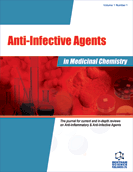Abstract
The innate immune system is an old defence mechanism that in primitive organisms consists mainly of humoral components like antimicrobial peptides. Many of these peptides share features such as size, cationicity, amphipathicity and kill microbes primarily by lysing the cell membrane. In more evolved organisms, humoral factors are supplemented by cellular components such as professional phagocytes, but the antimicrobial peptides are still important for host defence. Neutrophils are professional phagocytes that in humans contain two different classes of classical antimicrobial peptides belonging to the cathelicidin family and the α-defensin family, respectively. In addition to these two main groups of polypeptides, neutrophils are also rich in antimicrobial proteins. It is becoming increasingly clear that the antimicrobial peptides of neutrophils not only contribute to phagosomal killing, but also function as regulators of immunity; therefore the alternative name host defence peptides is more appropriate. The question whether antimicrobial host defence peptides are primarily immunomodulatory or antimicrobial in vivo has not been conclusively determined. At some locations in the body, e.g. in a phagosome, their effect is likely directly antimicrobial, whereas their immunomodulatory functions are probably more important at other sites. This review will provide a background to the field of antimicrobial peptides including their common features, mechanisms of killing and availability in nature. It will focus on the antimicrobial peptides present in human neutrophils and special emphasis will be given to the functional dualism displayed by many peptides giving them the ability to modulate the immune response in addition to being directly antimicrobial.
Keywords: Antimicrobial peptide, cathelicidin, defensin, host defence peptide, immunomodulator, innate immunity, neutrophil
 7
7





















